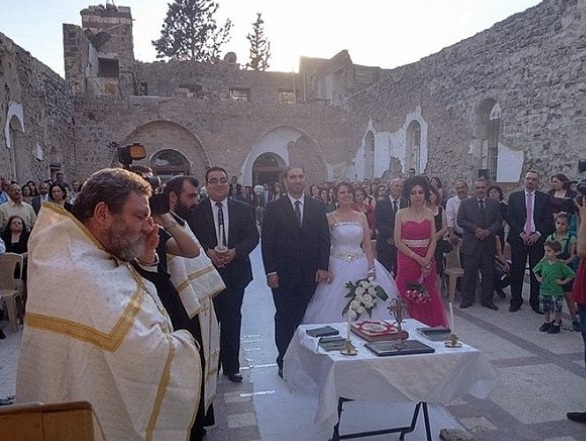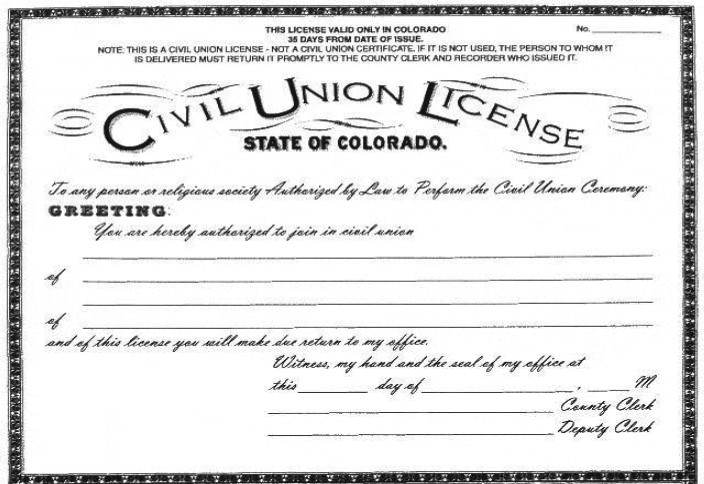Same-Sex Attraction
Photograph: Male couple kissing, Greek cup engraving, circa 480 BC. Photo credit: Marie-Lan Nguyen, Public Domain.
Introduction
This page contains resources for understanding and living with same-sex attraction from the historical Christian perspective.
Conversation Stations
These are the images used in artistic physical displays. They are survey questions and conversation starters that are topically and thematically organized. They demonstrate how Jesus is relevant to each topic or theme. You can also just view the images on your device. If you would like, see all our Conversation Stations; below are the ones that relate to the topic of Sex.
Messages and Resources on Same-Sex Attraction:
Should I Support or Oppose Gay Marriage?
An analysis from a biblical and theological position, where the First Amendment and the thought of Roger Williams around religious liberty of conscience are faithful expressions of Christian courtesy expressed in policy.
Jesus and the LGBTQ Community, Part 1: Politics and Science
Slides to a presentation that are part of a message. The message begins by advocating for the policy of civil unions for all, out of respect for the fact that all religious traditions define “marriage” slightly differently. The message also recognizes that it is helpful to bring up various branches of the sciences: biochemistry; anatomy and physiology; ecology and epigenetic.
Jesus and the LGBTQ Community, Part 2: Scripture and Stories
Slides to a presentation that are part of a message. The message examines Jesus’ use of the creation story and God’s original vision for human marriage, as narrated by Matthew 19:3 - 12 and Genesis 1 - 2.
Jesus and the LGBTQ Community, Part 3: Desires
Slides to a presentation that are part of a message. This message was recorded on video. The message examines the nature of human desire in general, as a gift from God to move us towards extending ourselves towards Him and others. However, we are called to submit our desires to Jesus, who demonstrated the normative human emotions and desires.
Whose Family? Which Union? Reflections on Scripture, Human Sexuality and God's Purposes
A paper summarizing the five Letters to a Gay Friend. This is an exegetical and pastoral paper examining biblical passages that are important in the discussion about what God’s vision for human sexuality is: Genesis 1 - 2; Leviticus 18 and 20; Matthew 19; Romans 1; 1 Corinthians 6 - 7; 1 Timothy 1. Ultimately, we have to look at the the nature of human desire in general, as a gift from God to move us towards extending ourselves towards Him and others. However, we are called to submit our desires to Jesus, who demonstrated the normative human emotions and desires.
The phrasing of Genesis 1:27 - 28 seems to indicate that the “image of God” is located in the phrase “male and female He created them”. While it is certainly true that each person is “in the image of God” individually, it does seem like the marriage of male and female is “in the image of God” in a special way: human childbearing is a partnership with God, mirroring God’s creation of humanity.
A response involving the sense that “love” is not completely self-evident. Also, can Romans 1:21 - 32 be understood to mean that what is “natural” for each person can vary? Can a bisexual person have two or more sexual partners because that is “natural” for them?
Is the issue of sexuality like other issues where the church has changed or updated its views? Like on science, or the issue of women in church leadership, at least for Protestants? We return to Jesus’ explanation of marriage in Matthew 19:3 - 12.
Can sexual orientation be used as a hermeneutical lens on Scripture? We revisit Matthew 19:3 - 12 and Jesus’ engagement with Genesis 1 - 2 once again. Logically, if sexual orientation — or desire, generally — can be our a priori lens, then what about the bisexual person? Or the person who believes that an open marriage is “natural”? This letter contains lots of notes on Romans 1:21 - 32.
This last letter responds to the request to provide evidence from the early church that they insisted on male-female marriage as the context for sexual union. It argues that science and cosmology are not analogous issues to the question of sexual expression and the ethics of sexuality. Neither are interest rates, slavery, and women in church leadership. It returns to closely read Genesis 1 - 4, Leviticus 18 - 20, the Gospel of Matthew as a whole, and Paul’s writings, especially 1 Corinthians.
God is the Primary Owner of Your Body: The Purpose and Destiny of Our Bodies
Text of a message on 1 Corinthians 6:19 - 20; see also resources on 1 Corinthians
Does the Christian Story of Sexuality Make Any Sense at All? Sexuality and Social Justice
A message exploring how the Western, individualistic framework of modernism and postmodernism does not give us a relational framework for ethics; that means "sexual freedom" also logically leads to exploitative "economic freedom."
How Our Choices Shape Our Desires: Experiencing the Triune God
A message on various biblical passages on how our choices shape our desires.
Desires, Beliefs, and How We Know Truth
This is a presentation on how desires are a consideration, but not the first, in how we know truth. Our desires suggest that we have both good and evil in us. This does not prove, but agrees with, the biblical story. After all, we are made in the image of God and wounded by sin. Some desires can be taken up and expanded by Jesus; other desires, Jesus reshapes or transforms. Also, belief systems have an implied story and metaphysics, which results in an ethics, and contains an epistemology, which is a way by which we can examine whether it is true. A 15 minute read.
Slavery and Belief Systems and The Church and Language
Links to pages on our website that are Important parallels for both conservative evangelical and liberal mainline Protestants because of the redefinition of words with regards to sexuality. Both conservative and liberal camps tended to redefine and misunderstand the word “slavery” in the Bible. Conservatives believed that they had to defend the Transatlantic Slave Trade in order to defend Scripture. Liberal Protestants - thinking they had “abolished” “slavery” - believed they had done better than the New Testament, and began to interpret non-metaphorical Scriptures metaphorically, a method also used for the word “marriage” or “children” as well as other theological topics deemed “irrational” or “primitive.” Both overlooked the 13th Amendment's permission of penal slavery which allowed slavery to continue in other forms.
Other Resources on Same-Sex Attraction
Gordon P. Hugenberger, Q&A on Homosexuality. Park Street Church.
Gordon P. Hugenberger, Q&A on Marriage. Park Street Church.
Peter Brown, The Body and Society: Men, Women, and Sexual Renunciation in Early Christianity. Columbia University Press | Amazon page, 1988.
Ray S. Anderson, Homosexuality: Theological and Pastoral Considerations. Journal of Psychology and Christianity, Winter 1996.
Richard B. Hays, The Moral Vision of the New Testament. HarperOne | Amazon page, 1996.
William A. Heth, Jesus on Divorce: How My Mind Has Changed. paper, 1997.
Robert A.J. Gagnon, The Bible and Homosexual Practice. Abingdon Press | Amazon page, 2001.
C. Jeandrel, et.al., Environmental Chemicals and Disorders of Sex Differentiation in Male Newborn. LesJTA, 2002.
Bishop Athenagoras Peckstadt of Sinope, Marriage, Divorce, and Remarriage in the Orthodox Church. Orthodox Research Institute, Apr 2005.
Thomas Schmidt, Searching for Truth in Lifestyles: Homosexuality & Christian Morality. Veritas Forum video, Feb 17, 2005.
Neil Swidey, What Makes People Gay? Boston Globe, Aug 14, 2005.
Thomas Schmidt, The Nature/Nurture Debate: Is Homosexuality a Choice. Veritas Forum video, Dec 31, 2005.
Thomas Hopko, Christian Faith and Same-Sex Attraction: Eastern Orthodox Reflections. 2006.
N.T. Wright, The Bible on Slavery, Sexism, and Homosexuality. Eric Holmburg, Mar 21, 2009.
Robert A.J. Gagnon, Divorce and Remarriage-After-Divorce in Jesus and Paul: A Response to David Instone-Brewer. paper, Jun 2009.
Stewart Koehl, An Independent Witness to Marriage. First Things, Jul 16, 2010. On the history of marriage and property from an anthropological perspective.
Wesley Hill, Washed and Waiting: Reflections on Christian Faithfulness and Homosexuality. Zondervan | Amazon page, Sep 27, 2010.
Alice Dreger, Where Masturbation and Homosexuality Do Not Exist. The Atlantic, Dec 4, 2012. A fascinating anthropological observation
Thomas Schmidt, Homosexuality and Christian Morality. Veritas Forum, Jan 1, 2013.
Vicki Leon, Greco-Roman Sex: Wilder & Weirder Than Ours. Huffington Post, Jan 31, 2013. An easy-to-read history lesson.
Burton, I Can't Change. blog, Feb 13, 2014.
Kyle Harper, From Shame to Sin: The Christian Transformation of Sexual Morality in Late Antiquity. Amazon book, 2013.
Ian Sample, Study Finds Gene on X Chromosome Linked to Male Homosexuality. Raw Story, Feb 14, 2014.
James R. Aist, Homosexual vs. Heterosexual Parenting: Is There Really No Difference? Rethinking Theology blog, May 31, 2014.
Pepper Schwartz, Can Sexual Preference Change With Age? Research Shows Attraction Can Be Fluid When Love is Involved. AARP, Jun 13, 2014.
Scott Sauls, Meet My Same-Sex Attracted, Evangelical Christian, Seminary Student Friend. blog, Jun 13, 2014.
Preston Sprinkle, David Gushee's Recent Shift on Homosexuality. Theology in the Raw | Patheos, Oct 28, 2014.
Julie Rodgers, Can the Gay Be a Good? Spiritual Friendship blog, Oct 23, 2014.
Lindsey Tanner, New Study Suggests Genetic Link for Male Homosexuality. Huffington Post, Nov 17, 2014.
Michael J. Kruger, The One Trait That Set Apart the Earliest Christians. The Gospel Coalition, Oct 28, 2014.
Jean C. Lloyd, Seven Things I Wish My Pastor Knew About My Homosexuality. Witherspoon Institute, Dec 10, 2014.
Michelle Boorstein, Gay Christians Choosing Celibacy Emerge from the Shadows. Washington Post, Dec 13, 2014.
Rod Dreher, How to Be a Gay Jesuit. The American Conservative, Jan 22, 2015.
Tim Otto, To Celibacy. Spiritual Friendship blog, Feb 2, 2015.
Eddie Kaufholz, Why Don't the Guys in My Church Ask Women on Dates? Relevant Magazine, Feb 18, 2015.
Wesley Hill, The Gift of Friendship. Brazos Blog, Apr 6, 2015.
Scot McKnight, Did Jesus Talk About Homosexuality?. Patheos, Apr 6, 2015.
Garrett Johnson, Pope Francis' View on Same-Sex Marriage in 6 Points. Catholic Link, Apr 10, 2015.
Qazi Rahman, 'Gay Genes': Science Is On the Right Track, We're Born This Way. Let’s Deal With It. The Guardian, Jul 24, 2015.
Joseph Sciambra, I Was the Other Man: An Insider's Look at Why Gay Marriage Will Never Work. Church Militant, Jun 28, 2015.
John Mark N. Reynolds, American Anti-Intellectualism and the Theological Left. Patheos blog, Jul 7, 2015.
Wesley Hill, Yes, Many Christian Communities Are Toxic for My LGBT Friends, But There's More. Washington Post, Jul 15, 2015.
Ryan T. Anderson, Same-Sex Marriage and Heresy. First Things, Jul 16, 2015.
Lisa Diamond, Sexuality Is Fluid – It’s Time to Get Past ‘Born This Way’. New Scientist, Jul 22, 2015.
Shamus Khan, Not Born This Way. Aeon, Jul 23, 2015. Interesting because he is a sociologist in favor of LGBT rights
Neil Swidey, What Makes People Gay? (An Update. Boston Globe, Aug 23, 2015.
Metropolitan Joseph, Archpastoral Directive On So-Called Same-Sex Marriage. American Orthodox Institute, Oct 29, 2015.
Emma Green, Hating the Queerness Without Hating the Queer. The Atlantic, Nov 7, 2015. Explores the cultural posture adopted by Southern Baptist leader Al Mohler.
Brandon Ambrosino, The Invention of 'Heterosexuality'. BBC, Mar 16, 2017.
Olga Khazan, How Older Brothers Influence Homosexuality. The Atlantic, Apr 27, 2016.
N.T. Wright, Gender and the Biblical Basis for Women's Service in the Church. CBE International, Mar 29, 2017. An important statement about the significance of gender.
Bobby Grow, The 'Nashville Statement' and T.F. Torrance on Human Sexuality and Same-Sex Relationships. The Evangelical Calvinist blog, Aug 29, 2017.
Jen Christensen, Having Older Brothers Increases Men's Likelihood of Being Gay. CNN, Dec 12, 2017. The mother's body produces antibodies against the first son's Y-chromosomes
Sarah Knapton, Genes Linked to Homosexuality Discovered by Scientists. Telegraph UK, Dec 7, 2017.
Emma Green, Hating Queerness Without Hating the Queer. The Atlantic, Nov 7, 2015.
Carol Kuruvilla, Chilling Study Sums Up Link Between Religion And Suicide For Queer Youth. Huffington Post, Apr 18, 2018. Citing Megan C. Lytle, John R. Blosnich, Susan M. De Luca, Chris Brownson, Association of Religiosity With Sexual Minority Suicide Ideation and Attempt. American Journal of Preventative Medicine, May 2018.
Father Thomas Hopko, Transformation: Same-Sex Attraction Through the Lens of Orthodox Christianity. Ancient Faith Podcast, Oct 22, 2021. A four part series.
Sex: Topics:
This section on Sex engages the role sex plays in human relationship. We examine Jesus’ definition of humanity, his referring to the larger biblical story, and God’s vision for relationships. Christian Reflections on Marriage focuses on the Christian definitions, and experiences, of marriage and sex. Same-Sex Attraction spotlights pastoral care for people who experience it and the debates about same-sex unions. Civil Unions for All is a biblical, constitutional, and practical defense of this policy proposal compared with a heteronormative policy. Character and Marriage highlights various perspectives on the relationship between personal character and the institution of marriage. Marriage Trends highlights varying approaches to, and experiences of, marriage, broadly. Sex Trends focuses on varying approaches to, and experiences of, sex, broadly. Sex Industry examines the moral problems with, and personal and social effects of, the commodification of sex. Desires: Jesus Leads Us to True Beauty explores human desires more broadly and deeply.









